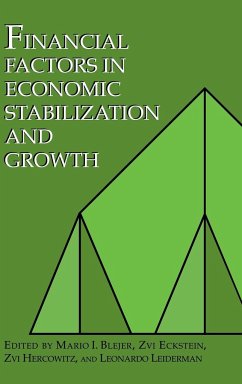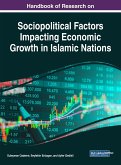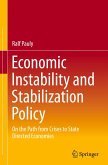With the advent of increased capital mobility in the last two decades, financial factors have become of key importance for the processes of stabilization and growth in developing, developed, and transforming economies. The size of international capital movements and the financial intermediation industry has become so large that these factors could become the dominant impulses for individual economies and the global economy in the 1990s and beyond. This book collects essays by well-known analysts in international economics and finance who treat these issues from relatively new perspectives. They focus on (i) the role of credit in the propagation mechanism of monetary policy; (ii) effects of monetary policy on the likelihood that a given economy will become a banking center; (iii) the implications of increased capital mobility for migration flows; (iv) the role of exchange rate bands in the transition from high to low inflation; and (v) the interaction between financial innovations and inflation.
Table of contents:
Part I. Introduction:Mario I. Blejer, Zvi Eckstein, Zvi Hercowitz, and Leonardo Leiderman; Part II. Transmission of Credit Policy: 1. The role of credit market imperfections in the monetary transmission mechanism: arguments and evidence Mark Gertler and Simon Gilchrist; 2. Identification and the effects of monetary policy shocks Lawrence J. Christiano, Martin Eichenbaum, and Charles Evans; 3. Credit market imperfections and low-output equilibria in economies in transition Guillermo A. Calvo and Fabrizio Coricelli; Part III. International Financial Factors: 4. Transparency and the evolution of exchange rate flexibility in the aftermath of disinflation Alex Cukierman, Miguel Kiguel, and Leonardo Leiderman; 5. Cross-border banking Jonathon Eaton; 6. Immigration and growth under imperfect capital mobility: the case of Israel Zvi Hercowitz, Nirit Kantor, and Leora Meridor; Part IV. Financial Innovation and Growth: 7. Interpreting monetary stabilization in a growth model with credit goods productionRao Aiyagari and Zvi Eckstein; 8. The macroeconomic effects of financial innovation: the case of Israel Rafael Melnik and Eran Yashiv.
With the advent of increased capital mobility in the last two decades, financial factors have become of key importance for the processes of stabilization and growth in developing and transforming economies. This book collects essays by well-known analysts in international economics and finance who treat these issues from new perspectives.
This collection explores how financial factors have become of key importance for stabilization and growth in developing and transforming economies.
Hinweis: Dieser Artikel kann nur an eine deutsche Lieferadresse ausgeliefert werden.
Table of contents:
Part I. Introduction:Mario I. Blejer, Zvi Eckstein, Zvi Hercowitz, and Leonardo Leiderman; Part II. Transmission of Credit Policy: 1. The role of credit market imperfections in the monetary transmission mechanism: arguments and evidence Mark Gertler and Simon Gilchrist; 2. Identification and the effects of monetary policy shocks Lawrence J. Christiano, Martin Eichenbaum, and Charles Evans; 3. Credit market imperfections and low-output equilibria in economies in transition Guillermo A. Calvo and Fabrizio Coricelli; Part III. International Financial Factors: 4. Transparency and the evolution of exchange rate flexibility in the aftermath of disinflation Alex Cukierman, Miguel Kiguel, and Leonardo Leiderman; 5. Cross-border banking Jonathon Eaton; 6. Immigration and growth under imperfect capital mobility: the case of Israel Zvi Hercowitz, Nirit Kantor, and Leora Meridor; Part IV. Financial Innovation and Growth: 7. Interpreting monetary stabilization in a growth model with credit goods productionRao Aiyagari and Zvi Eckstein; 8. The macroeconomic effects of financial innovation: the case of Israel Rafael Melnik and Eran Yashiv.
With the advent of increased capital mobility in the last two decades, financial factors have become of key importance for the processes of stabilization and growth in developing and transforming economies. This book collects essays by well-known analysts in international economics and finance who treat these issues from new perspectives.
This collection explores how financial factors have become of key importance for stabilization and growth in developing and transforming economies.
Hinweis: Dieser Artikel kann nur an eine deutsche Lieferadresse ausgeliefert werden.








